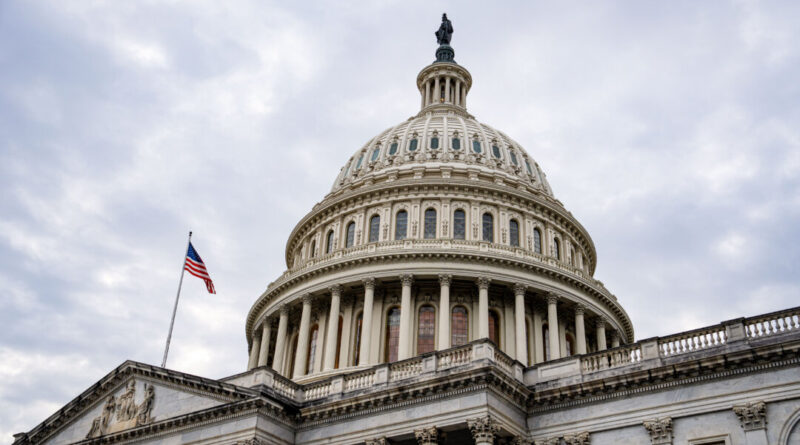Inside the $895 Billion Defense Authorization Bill: Key Highlights
The House and Senate Armed Services Committees have unveiled an 1,813-page bill that reconciles their differing versions of the National Defense Authorization Act (NDAA).
The House of Representatives may vote this week on a unified version of the 2025 National Defense Authorization Act, which proposes up to $895.2 billion in defense discretionary spending.
This updated version of the NDAA, comprising 1,813 pages, reflects a compromise between prior proposals from the House and Senate for the annual defense budget.
The Armed Services Committees released the revised compromise bill on December 7.
The bill allocates $849.9 billion for Department of Defense (DOD) programs and an additional $33.3 billion for defense initiatives overseen by the Department of Energy and its Defense Nuclear Facilities Safety Board, along with $512.4 million for defense-related activities.
The NDAA permits up to $11.5 billion in discretionary spending adjustments, potentially raising the overall total to $895.2 billion.
Additionally, $26.5 billion is linked to mandatory programs.
The revised version features enhanced funding aimed at strengthening U.S. military capabilities in the Indo-Pacific region, allocating $15.6 billion for the Pacific Deterrence Initiative, designed to enhance the U.S. military’s capabilities against China.
Additional provisions in the bill focus on mitigating the risk of sensitive U.S. information being accessed by Chinese actors.
A variety of measures prevent the DOD from purchasing certain equipment or engaging specific services from China.
The compromise NDAA also allocates funds for seven new warships, which include a Virginia-class submarine, extra funding for a second submarine, an amphibious transport dock, and a medium landing ship.
Moreover, it authorizes funding for three new Arleigh Burke-class guided-missile destroyers, exceeding the DOD’s request by one vessel.
This NDAA fully funds the new Columbia-class submarine and B-21 Raider stealth bomber programs.
Additionally, the legislation includes a 4.5 percent pay increase for all U.S. service members, with enlisted personnel at E-4 rank and below benefiting from a 14.5 percent pay boost.
Allowances related to cost of living and basic needs for service members have also been increased.
Furthermore, the bill enhances family support through funding for childcare programs and new facilities, in addition to expanding employment assistance for military spouses.
“Concerns about servicemember quality of life significantly impact morale and family stability, undermining recruitment, retention, and military readiness,” the Republican-led House Armed Services Committee stated in a summary.
“The 2025 NDAA will enhance the quality of life for service members and their families.”
Culture War Riders
Cultural issues have created challenges for the Democrat-led Senate and the Republican-led House in reconciling their defense strategies.
The House passed NDAA version in June included measures to eliminate diversity, equity, and inclusion (DEI) positions within the DOD and a halt to new DEI hires.
Other elements from the House’s NDAA stripped funding for abortion-related travel, prohibited funding for teaching “gender ideology” in DOD-funded schools, and disallowed defense spending on gender transition services.
The compromise NDAA version preserves the DEI hiring freeze but abandons the House’s proposals to outright eliminate DEI programs and positions.
It also discards the initiatives to obstruct funding for abortion-related travel and removes financial support for materials promoting gender ideology in DOD-financed educational institutions.
However, the compromise bill prohibits the DOD’s health care program, Tricare, from covering gender-transition treatments for individuals under 18.
Another House NDAA provision, which would restrict the DOD from contracting with entities that participate in boycotts against Israel, has been included in the compromise bill.
Both Republicans and Democrats declared victories in the cultural debates.
“The FY25 NDAA builds upon previous accomplishments from the FY24 NDAA to eliminate the imposition of radical woke ideologies on our servicemen and women and refocuses our military on its lethality,” the Republican-led House Armed Services Committee remarked in its evaluation of the compromise bill.
Rep. Adam Smith (D-Wash.), ranking member on the House Armed Services Committee, aims to make changes to the final bill to remove the provision that prohibits Tricare coverage for gender-transition treatment in minors.
“This particular provision has introduced partisanship into a traditionally bipartisan defense bill.”
Smith accused House Speaker Mike Johnson (R-La.) of leveraging this provision to cater to extreme factions within his party and urged him to reconsider the clause.
Provisions Not Adopted
The new bill eliminates hundreds of additional legislative items proposed by lawmakers in both the House and Senate.
One suggested requirement would have mandated U.S. individuals and businesses to inform the Treasury Department of outbound investments in critical technology sectors in China, Russia, Iran, and North Korea.
This notification requirement would have included various sensitive technology investments, such as advanced semiconductors, microelectronics, hypersonic technology, quantum computing, and artificial intelligence systems.
The compromise NDAA did not adopt many provisions from amendment 3290, including the outbound investment notification mandate.
The House had sought to include a provision that would establish a drone corps as an essential component of the U.S. Army, but this measure did not find its way into the new bill.
Another House NDAA proposal that called for the DOD to conduct a report regarding combating Mexican drug cartels was not included in the compromise bill.
However, the new bill does require the Secretary of Defense to assess the capabilities of the Mexican military to counter transnational criminal organizations and review the DOD’s counternarcotics support for Mexican forces by April 1, 2025.




